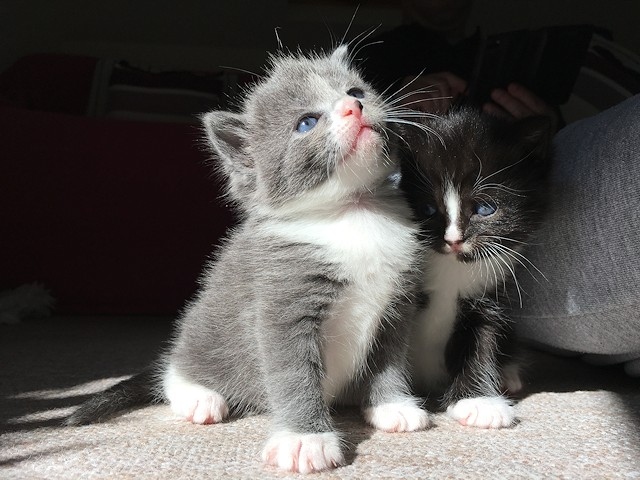Hundreds more unwanted kittens could be born during the Coronavirus lockdown
Date published: 15 May 2020

Female cats can become pregnant when they are still kittens themselves, from as young as four months old
Leading animal welfare charities are urging owners of unneutered cats to help prevent a lockdown kitten crisis.
Every year animal welfare charities see an influx of kittens coming into their care between the months of May and September, known as ‘kitten season’.
The UK has been facing a cat overpopulation crisis for many years but with lockdown rules making access to neutering more difficult the plight of unwanted kittens is set to worsen. Leading animal welfare charities have teamed up to provide advice for cat owners to prevent their cats from becoming pregnant.
Alice Potter, RSPCA’s cat welfare expert, said: “Whilst many parts of our daily lives have changed or been put on hold at the moment, the kitten season will not stop so it’s important that cat owners are prepared.
“Cats aren’t fussy about who they mate with and any related cats like brothers and sisters will mate so if they haven’t been done, it’s important to keep them apart.
“If you think there is a chance your female cat could have mated, call your vet as soon as possible.”
Female cats can become pregnant when they are still kittens themselves, from as young as four months old, so they should be spayed at around this age. Neutering male cats can stop them spraying in your house to mark territory, prevent nasty injuries from fights, and make them less likely to wander.

Jane Clements, Head of Neutering at Cats Protection, said: “While access to veterinary care is limited we also strongly recommend keeping unneutered cats indoors. Any cat pregnancy can be risky and female cats can conceive from four months of age. We do recognise however that keeping an outdoor cat inside can be stressful and frustrating so those seeking help can visit our website, as well as other animal welfare charity websites, for tips on how to keep their cat happy and active.”
If keeping cats indoors, it’s important to make sure they have plenty of enrichment with lots of play time, toys and puzzle feeders.
There are an estimated 10.9 million pet cats in the UK according to the 2019 PDSA PAW Report which also reports that 92% of owned cats are neutered. It is difficult to predict how many more kittens may be born due to the lockdown restrictions, however last year, six of the leading cat welfare charities neutered a total of 216,261 cats.
This figure helps to demonstrate the large number of cats neutered by charities each year and a reduction in these numbers during the Covid-19 crisis could lead to more unplanned and unwanted litters being born.
Caroline Allen, Chief Vet for the RSPCA, said: “Understandably vets are prioritising emergencies in the face of Covid-19 and restricting other procedures. Vets are advised to perform neutering only where it is essential for health and welfare during the current period. It is important to follow your vet’s guidance and understand if they cannot neuter your pet at this time, you will need to take other steps to avoid unwanted pregnancy.
“If you have a male/female pair or really can’t keep your cat inside, do call your vet to discuss options.”
Do you have a story for us?
Let us know by emailing news@rochdaleonline.co.uk
All contact will be treated in confidence.
Most Viewed News Stories
To contact the Rochdale Online news desk, email news@rochdaleonline.co.uk or visit our news submission page.
To get the latest news on your desktop or mobile, follow Rochdale Online on Twitter and Facebook.


